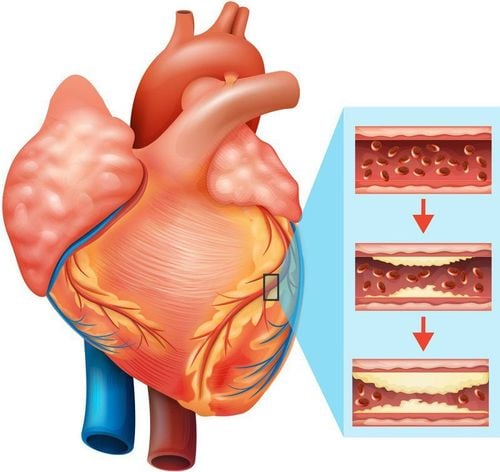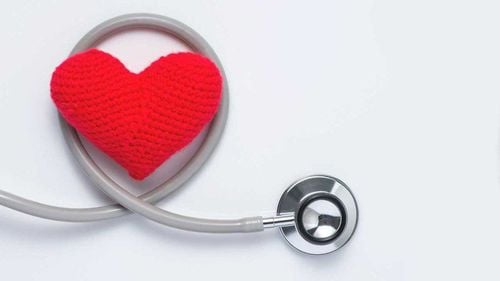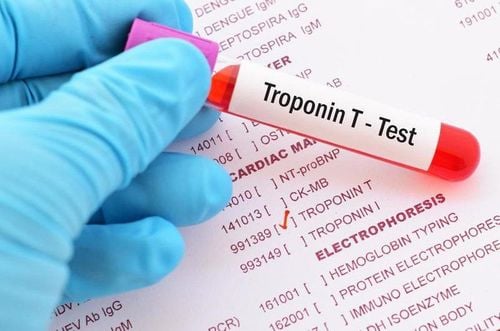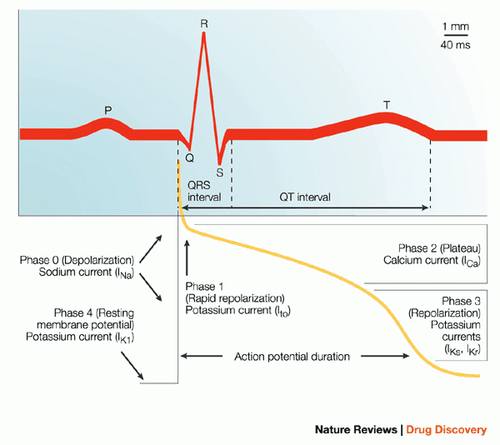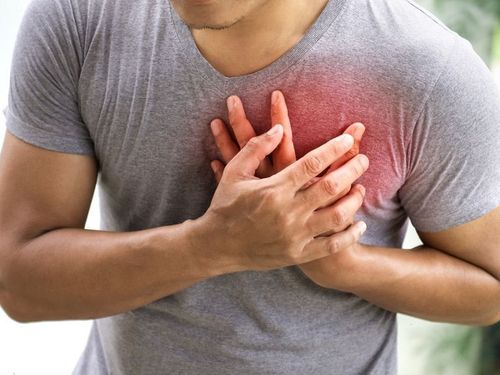This is an automatically translated article.
The article is professionally consulted by Master, Doctor Hoang Thi Hoa - Cardiologist - Department of Medical Examination and Internal Medicine - Vinmec Ha Long International General Hospital.Ventricular arrhythmia is a type of arrhythmia that causes the heart to beat at an abnormally fast rate. If not detected and treated promptly, ventricular arrhythmias can be life-threatening.
1. What is ventricular arrhythmia?
Ventricular arrhythmia originating in the ventricles of the heart. Normally, the electrical signal that generates the heartbeat begins in the right atrium, at the sinus node (SA node). If the heart rate is faster than 100 beats/min and originates from the SA node, it is called sinus tachycardia, which is completely normal.
However, sometimes the heart rhythm can become irregular if the electrical signal is not coming from the sinus node but instead from the ventricles. These abnormalities are called ventricular arrhythmias.
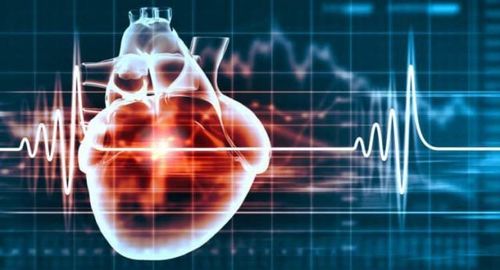
Tín hiệu điện tạo ra nhịp tim bắt đầu từ tâm thất gọi là rối loạn nhịp thất
2. Causes of ventricular arrhythmias?
There are many causes of ventricular arrhythmias. It may be due to unscientific living habits such as abuse of stimulants or the impact of stressful living situations and environments. Heredity is also a cause of ventricular arrhythmias.
In addition, ventricular arrhythmias can result from the following diseases:
Myocardial ischemia Heart failure Congenital heart disease Autonomic neuropathy Primary ventricular myoclonic disorder Sudden neonatal death syndrome Cardiomyopathy ( including dilated myocardium, hypertrophic cardiomyopathy, right ventricular dysplasia)
3. Manifestations of patients with ventricular arrhythmias
The worrying thing about ventricular arrhythmias is that patients often have no specific symptoms that will be discovered incidentally during medical examination or during ECG monitoring at the hospital. Depending on the patient, the symptoms of ventricular arrhythmias can also manifest as:Irregular heartbeat, feeling chest tightness Shortness of breath, possibly even fainting or sudden death.

Rối loạn nhịp thất có thể dẫn tới đột tử
Reports suggest that ventricular arrhythmias can occur at any age and regardless of sex. Most patients with underlying cardiovascular disease are prone to ventricular arrhythmias. The disease is also common in the elderly, who have a habit of abusing alcohol and stimulants.
In order to diagnose ventricular arrhythmia most accurately and find out the specific cause, it is necessary to use many other techniques such as: Electrolyte, SAECG, Holler, Implant monitoring device, NPGS, coronary angiography , cardiac electrophysiology, genetic testing, biomarkers. Therefore, to know the most accurate way about the disease, patients should go to hospitals and medical facilities for examination and treatment advice.
4. Treatment of ventricular arrhythmias
To diagnose ventricular arrhythmia, doctors must perform many tests to make an accurate diagnosis of the cause. From there, come up with suitable plans. Treatment options for ventricular arrhythmias include:
Cardioversion with electric shock or medication Discontinue all drugs suspected of causing the arrhythmia. Maintenance treatment with drugs. Pacemaker implantation and defibrillator implantation. Radio frequency energy therapy. Surgery.

Tùy vào nguyên nhân gây bệnh để có phương án điều trị thích hợp
5. Living and eating scientifically to avoid ventricular arrhythmias
Having a scientific diet and activities helps us limit cardiovascular diseases, as well as ventricular arrhythmias.
Eat heart-healthy foods like fruits, vegetables, whole grains, and limit salt and solid fats. Regular exercise promotes health and reduces stress. Limiting alcohol, tobacco and other stimulants is also a way to avoid ventricular arrhythmias. Finally, remember to regularly check your blood, blood cholesterol levels and periodically re-examine for timely and effective measures. Currently, Vinmec International General Hospital is having a Cardiac Arrhythmia Checkup Package with the implementation of a team of highly qualified and experienced doctors and the support of a system of modern and advanced machines, which will help screen. Prevention of cardiovascular diseases with subjects with cardiac arrhythmias gives the most accurate results.
Master. Hoang Thi Hoa has more than 10 years of experience in the field of Cardiology, especially in the field of cardiovascular emergency and echocardiography. Doctor Hoa used to be the Deputy Head of Cardiology Department of Quang Ninh General Hospital before working at Vinmec Ha Long International Hospital.
If you notice unusual health problems, you should visit and consult with a specialist.
Please dial HOTLINE for more information or register for an appointment HERE. Download MyVinmec app to make appointments faster and to manage your bookings easily.




